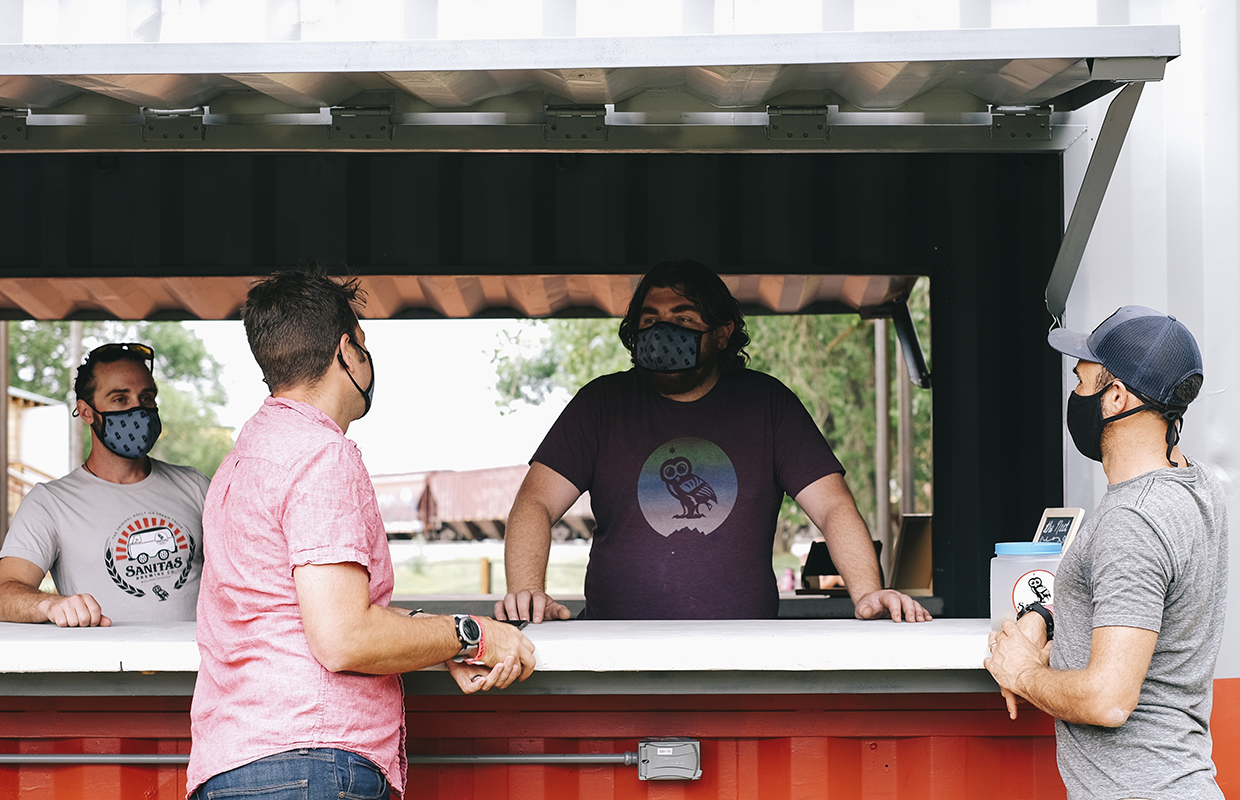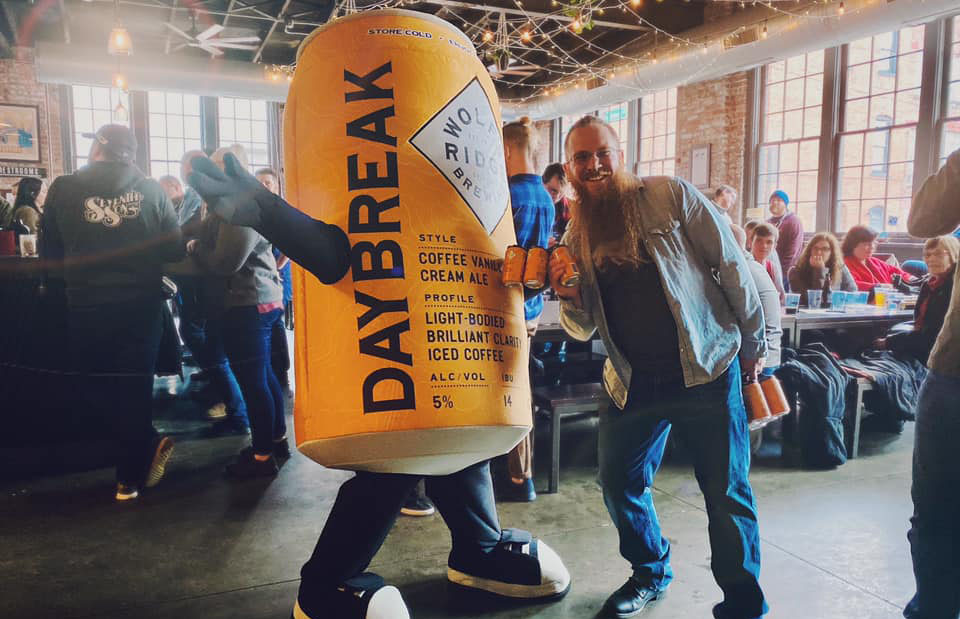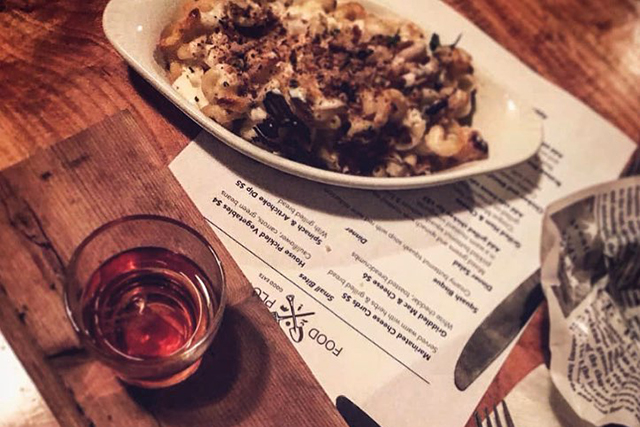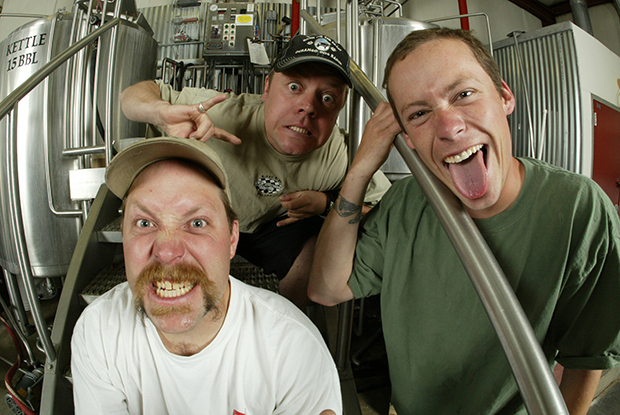
Sanitas has seen its Sour program evolve from a boutique side of production to an absolute workhorse.
”This category of our brewing is second only to our IPAs,” explained co-founder and CEO Michael Memsic. ”I would not be surprised if in 2021 we produce more Sour beer than we do IPA.”
The Boulder, Colorado brewery has seen its Sours selling across the general market and Memsic believes that at least locally, its Sours are becoming a standard for many craft shoppers.
Overall the brewery’s sour portfolio is growing on all levels. What started as a focus on barrel-aged Sours that took up time and real estate in the brewery, Memsic said that while they have continued to grow that side of the business Sanitas has been pushing more on the Kettle Sour side of things.
”This started in 2018 as an R&D project and has turned into one of the largest categories for our brewery,” he said. ”We are continuing to explore new fruits, hops, and styles overall to grow this side of our business.”
So how does that affect marketing the brands and continuing to educate the category to newer consumers while also appealing to a more niche audience?
“I believe that the culture of Sour beer on the front range of Colorado has done a lot of educating for us,” Memsic said. “Beyond that, we have a focus on drinkable Sour beers that complement your day and don’t try to be the main event.
“Because of this, we believe that the barrier to entry on our Sours is lower than others in the market and we are seeing the results of this style of Sour.”
Training and education are a constant for Cascade Brewing, especially with the many different types of sours out there.
”Our restaurants are a common place for us to educate people one on one in a more intimate setting,” said Cascade’s Greg Laird, a part-owner of the Portland, Oregon brewery. “That is always our preference, but obviously is a challenge for reaching broad groups of people or even individuals when the restaurants are not allowed to operate.”
In the absence of beer festivals to go to this year, Cascade has spent more energy attending virtual events and providing educational sessions on webcasts.
”We are always happy to provide an educational session on sour beers,” Laird said.
Sour beers are a major portion of Cascade’s business. Laird said that while specialty shops have always been a great place to find sour beers, they had also seen draft sales increase before the pandemic.
”We expect that restaurants and tap houses will continue to offer sour beers once they reopen and see that as a bright future for sour beers,” Laird said.
While Cascade is always looking to innovate in the space with the use of new and interesting ingredients, there are two broader changes made in 2020 that are noteworthy for the brewery.
The first was the creation of a lower acidity barrel-aged sour. Laird said the goal was to create a more approachable beer that would appeal to drinkers who might be new to the scene while also achieving the complexity that comes from a robust barrel-aging program.
”These beers have been very well received and we plan to continue producing them throughout 2021,” he said.
The other change that Cascade has made is the introduction of a 250ml can packaging.
”We wanted to add this type for a couple of reasons, but the main reason was that we know people are doing less bottle sharing and there was a stronger demand for individual package sizes,” Laird noted.
To gain popularity with the general public Crooked Run Brewing has made a line of fruited Brett and Lacto beers that are a gateway from kettle sours into the realm of mixed fermentation.
The blended Blondes/Saisons have a less acidic and highly drinkable profile, making them an easy entry-level sour beer,” explained Head Brewer McKinnen Leonard. During COVID the Sterling, Virginia brewery started making YouTube videos to educate customers on some of the processes it uses.
“Really the key here is education,” Leonard said. “The more you can talk to someone about the product you are making, the better. I would say most beer drinkers don’t really understand what mixed fermentation or coolship beer is and it’s up to the producers to bring this wonderful thing into their world.”
Using local malt is a huge part of the story Crooked Run uses to help sell the program.
“If possible, we use all local malt, fruit, barrels used by local wineries, locally sourced yeast (or a coolship), and we are attempting to transition to local hops for our coolship beers,” Leonard said.
Photos courtesy Cascade Brewing & Sanitas Brewing




Be the first to comment